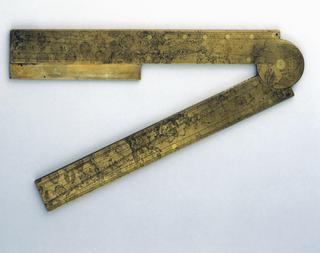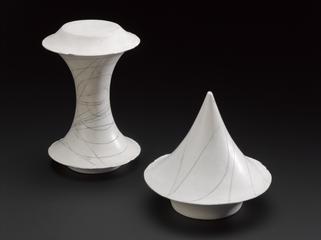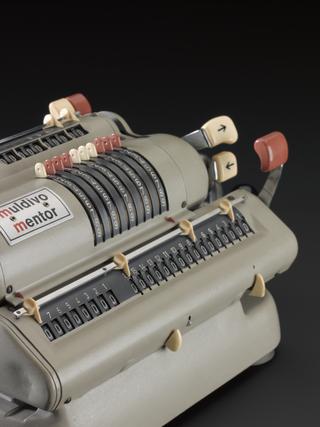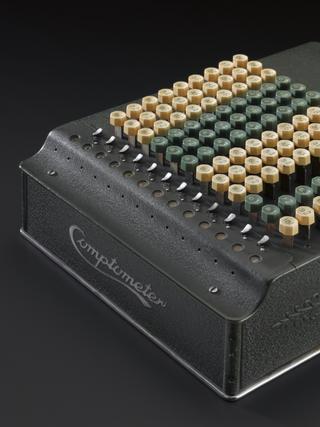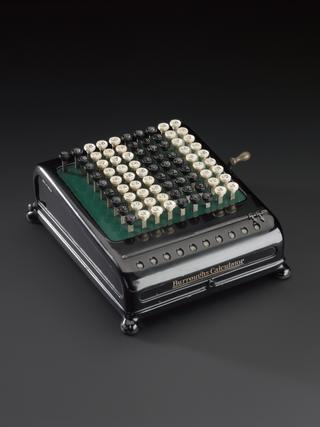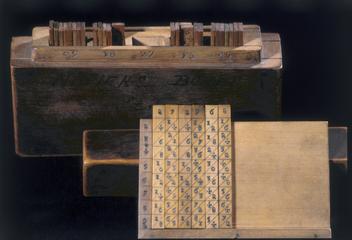
Conoid surface model
- maker:
- Fabre de Lagrange









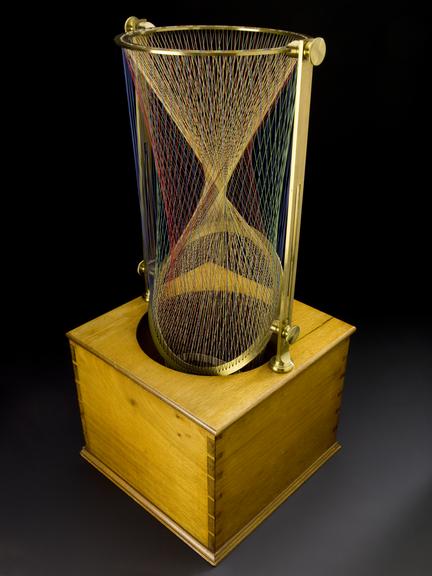
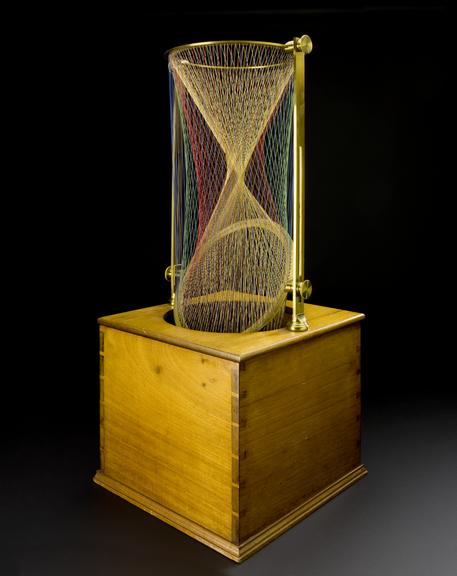
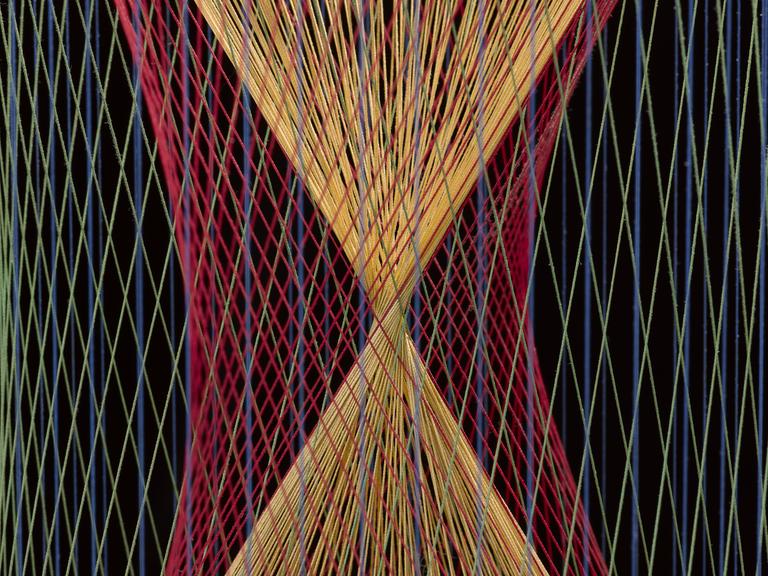




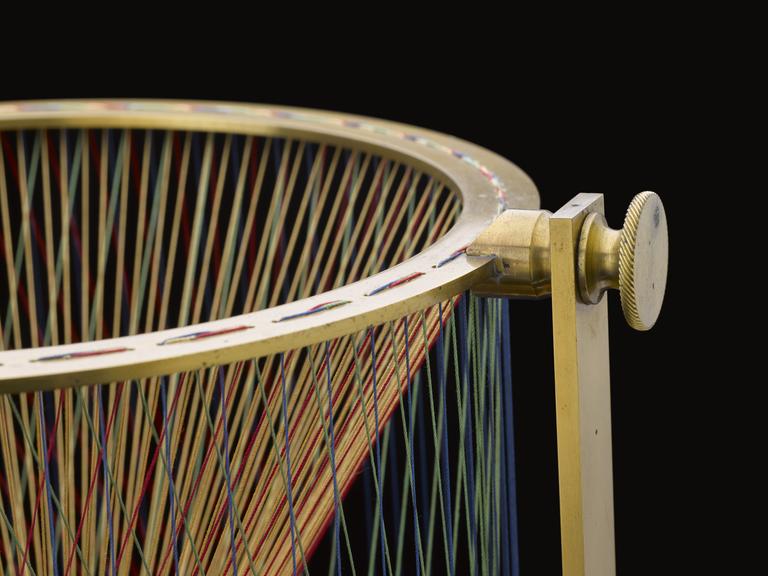
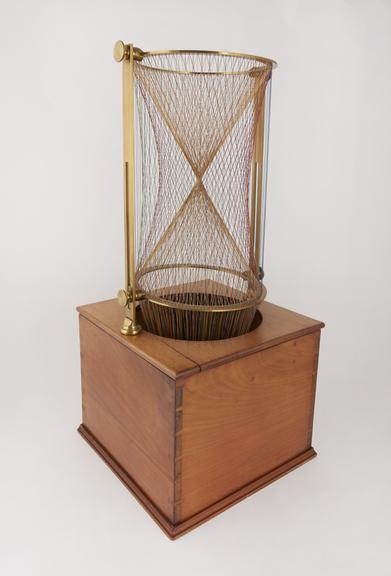
Conoid string surface model, made by Fabre de Lagrange, France, 1872. Two equal circles in parallel planes, divided equidistantly, and connected by threads, form a cone, a cylinder, and two conoids.
Descriptive geometry, a new branch of the subject introduced after the French Revolution, was concerned with converting 3D figures into 2D and vice versa – especially important for architecture, shadows and perspective. In 1830 Theodore Olivier designed a series of models which could be distorted and rotated to provide a variety of geometrical configurations. They were much more effective than two-dimensional images for communicating the shapes of complex three-dimensional surfaces. Different coloured strings, weighted with lead beads hidden in the wooden bases, could be distorted and rotated, revealing a variety of surfaces simultaneously. They were produced in significant numbers and sold across the world.
This example was made by the French company Fabre de Lagrange. It is an example of the more complex type which has threads hanging from the upper frame, held taught by lead weights in the base. The two circles can be manipulated to form a cylinder or a variety of conoids. Two equal circles in parallel planes, divided equidistantly, are connected by threads, so as to form a cone, a cylinder, a conoid, a second conoid; the director planes, as well as the head lines, of these conoids are at right angles to one another.
As mathematical theories developed, models fell out of favour. After the First World War, models appeared in galleries and museums as historical curios, where they began to reach another audience: avant-garde artists, who found in them not guidance for abstract thinking but inspiration for exploring shape and form.
Details
- Category:
- Mathematics
- Object Number:
- 1872-113
- Materials:
- brass (copper, zinc alloy), lead (metal), wood (unidentified) and string
- Measurements:
-
overall: 625 mm x 280 mm x 283 mm,
- type:
- surface model (string)
- credit:
- Fabre de Lagrange
